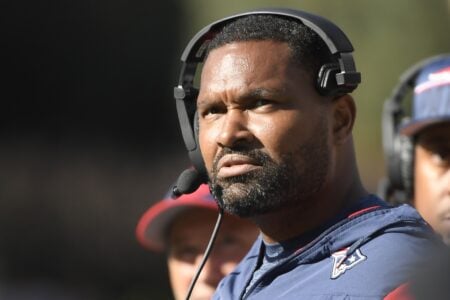A.) It's all about probabilities
B.) BB is one of the best in the business
It can't be both A and B. Either it's not all about probabilities, or one GM can be better than the other. That's an either/or situation. Since none of us believe that to everyone drafts equally well, PLK can't possibly mean what he was posting about it being all about probabilities. It can't be a purely random statistical probability and, therefore, he has no real point.
It's all about getting the probabilities right. It's about correctly selecting the players with the highest probability of turning into the player that you want. Belichick is as good as anyone at that.
There is really only one high probability of success round, the first, and even that is not as high as many people imagine. Maybe 50% success in the second round, if you are good, and it's all downhill after that.
If Belichick selects a player who has a 50% chance of success in the second round, and other general managers are selecting players who have a 40% chance of success, over a period of time Belichick will do better than they do.
But short-term, Belichick's failure rate will be 50%, and he is very likely to have a string of failures at some point. And he will have some strings of successes. This will happen
even if he is doing exactly the same thing with exactly the same skill.
The same applies to the 40% chance of success people. They have a 60% chance of failure, but they may well still have some runs of successes.
In this example, Belichick will have an advantage over time, but the short-term results may not show it. Short-term, getting lucky can easily trump skill.
It's the same thing in flipping a coin where the chances are 50-50. Look at a table of a large number of coin flips. You will be surprised by how many long runs there are of heads and tails. A man who teaches statistics says that he can always tell when his students have faked their coin flipping exercise because they don't include enough seemingly improbable runs.
Since I've said all this above, and "God" did not understand it then, I don't expect him to understand it now, but I know that there are people out there who will understand that if they read it.
Let me try it this way since the draft is frequently described as a crapshoot. If you are shooting craps, the results are going to be random, but if you have a more accurate knowledge of the odds, and thus what is a good bet, over a period of time you're going to do better than someone who has a less accurate knowledge of the odds.


















